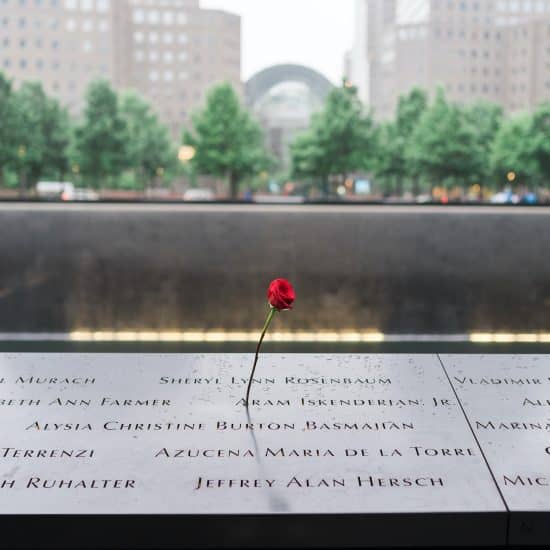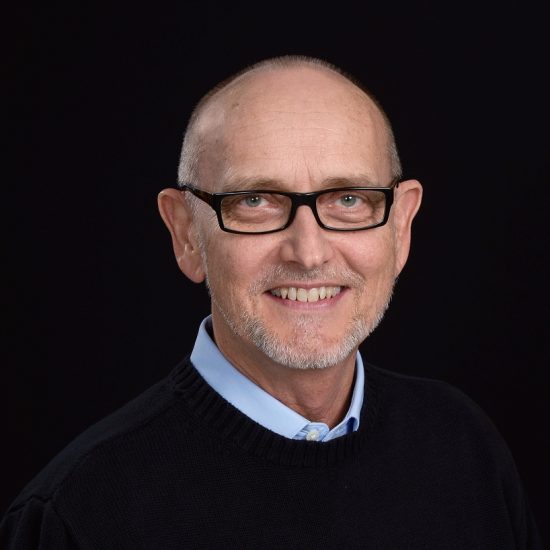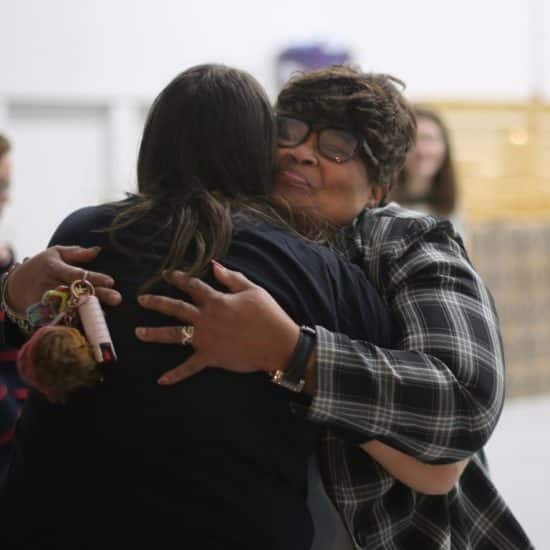JEFFERSON CITY — "None of us knows the length of the race we are to run," Gracia Burnham reminded members of First Baptist Church, Jefferson City.
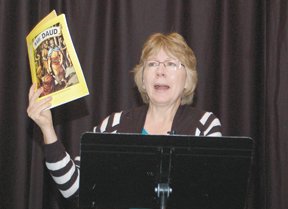
Gracia Burnham explains how comic books about the prophets are making a difference in the lives of militants in the Philippines. Burnham and her husband, Martin, were held captive by members of the Abu Sayyaf for more than a year. Martin was killed and Gracia was wounded in a gun battle that freed her in 2002. (Photo by Vicki Brown)
|
Noting that tombstones usually include birth and death dates, she pointed out the dash between them represents an individual's life. "We only get one dash," she said.
First Baptist culminated its yearlong 175th anniversary celebration July 7-8 with a banquet featuring Burnham on Saturday and a celebration service on Sunday.
Burnham and her husband, Martin, served with New Tribes Mission in the Philippines. Militant Muslims, members of the Abu Sayyaf, kidnapped the couple on May 27, 2001. After spending more than a year in captivity, Martin was killed and Gracia was wounded in a gun battle between the Abu Sayyaf and the Philippine military on June 2, 2002.
Events mark each life, Burnham told the First Baptist crowd, and often the Israelites set up stone reminders — an Ebenezer — of particular or special encounters with God.
She drew from her personal Ebenezer, a wooden box, to share how God had worked in her life. Pulling out an airplane oxygen mask, she shared that the first time she had heard the spiel about its use was in 1986 when she and Martin first headed to their mission assignment.
Burnham was struck by the instructions to place the mask on yourself before assisting someone else. She thought it a selfish act, but her husband explained that if she tried to help another person first, likely she could pass out before she could assist. Possibly both would die. A passenger needs oxygen before he or she can help another to receive it.
The principle applies to the gospel. "You can't give what you haven't received," she said. People can't give God's goodness until they know it.
Burnham pulled a tribal knife from the box — a reminder of the ministry she and her husband shared among cultural minorities, teaching scriptural basics. "Do you know the gospel…well enough to tell your neighbor about it?" she challenged listeners.
Her Ebenezer includes wrappings from food items they carried long after the food had been consumed. At times of near starvation, Martin and Gracia would sniff the lingering aromas. God used hunger to show the missionary her weaknesses. "I saw myself as I really was…. I thought I was a pretty good person," she said. Instead, she saw a "hateful Gracia," a "covetous Gracia" and an "unfaithful Gracia."
Hebrews 4:12 points out that God's Word is a discerner, she said. "We are weak and needy" as people, "but God didn't leave me there," she said.
Martin reminded her that God said to be great in his kingdom, believers must be the servants of all — including the "bad guys." The couple began finding ways to serve their captors. "As we prayed, God began giving us the personal victories we needed," Burnham said. "You're not being held captive in the jungle…but your needs are real…. God has promised to help you."
She pulled out a long piece of fabric that she had used as everything from clothing to a blanket to a changing room, and soon became a symbol of God's provision.
Finally, Burnham showed comic books about prophets, such as Abraham, Muslims also recognize. When she learned Wycliffe translated materials in dialects the Abu Sayyaf used were out of print, her foundation provided funding to reprint most of it, with the comics reprinted first. The series includes the life of Jesus, whom Muslims recognize as a prophet.
Burnham and her children had been asking God to work in the lives of the Abu Sayyaf and that she would learn what had happened to her captors. She learned that four former members have converted, and her foundation is developing projects to minister.
"God is good…whether we understand it or not…. I've been reminded that the seeds we planted 10 years ago are bearing fruit," she said. "Keep planting seeds, my friends."
Burnham said her family has a lasting stone — Martin's tombstone. "Live a life worthy of the Lord," she said. "Let's make the dash…one that counts."
Sunday celebration
Using highlights from the church's 175-year history, First Baptist Pastor Doyle Sager reminded members that "change is a consistency" for the congregation.
In 1837, members of Sardis Union Church, now First Baptist Church of Elston, voted to establish the Jefferson City congregation. Fourteen members, including people of color, formed a church in the city on July 8 that year.
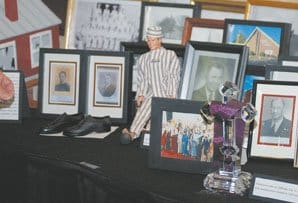
First Baptist Church, Jefferson City, set up a display of its 175 years of ministry, including a doll dressed like a prisoner to represent the Wednesday evening in November 1954 when a prison riot broke out in the city and Thomas Nelson was called as pastor. (Photo by Vicki Brown)
|
"But that isn't where it really started," Sager said. Someone had founded the Elston church, he reminded listeners. But they also had to go back to the apostles, to the cross, to the incarnation and finally, to the heart of God. "It didn't start at Sardis Union Church but in the heart of God," he said.
The pastor pointed out the churches and missions the congregation had started at home and overseas, including Immanuel Baptist Church; Parkview Chapel; the Renn Addition Mission, now Calvary Baptist; and Concord Baptist, all in Jefferson City. It currently assists Familia Cristiana Internacional, an Hispanic congregation that meets in its facility. The church sponsored three missions in Iowa, one each in Ottumwa, Albia and Des Moines.
First Baptist also has been a leader in making changes to reach people. It was among early congregations to use bus ministry and one of the first to add a recreation center to its church plant.
Sager also reminded congregants the church must not be "stuck in the past…but look to the future." He pointed to four epochs in First Baptist's history. In the early struggle from 1837-1887, the church almost disbanded partly because it was without a pastor often and because of "lack of interest." During the Civil War, Union soldiers took over the building.
The period from 1888 to 1919 marked rooting into the community and church growth. Denominational identity and post-World War II boom set the tone from 1920 to 1990. Then since 1991, cultural shifts have caused the church to "re-dream" its mission.
The church is "like a great river," he added, that becomes deeper and wider with "not just one kind of Baptist" but with lots of tributaries that overflow and cut new channels.
Members surprised Sager with a gift to mark his 15th anniversary as pastor.

